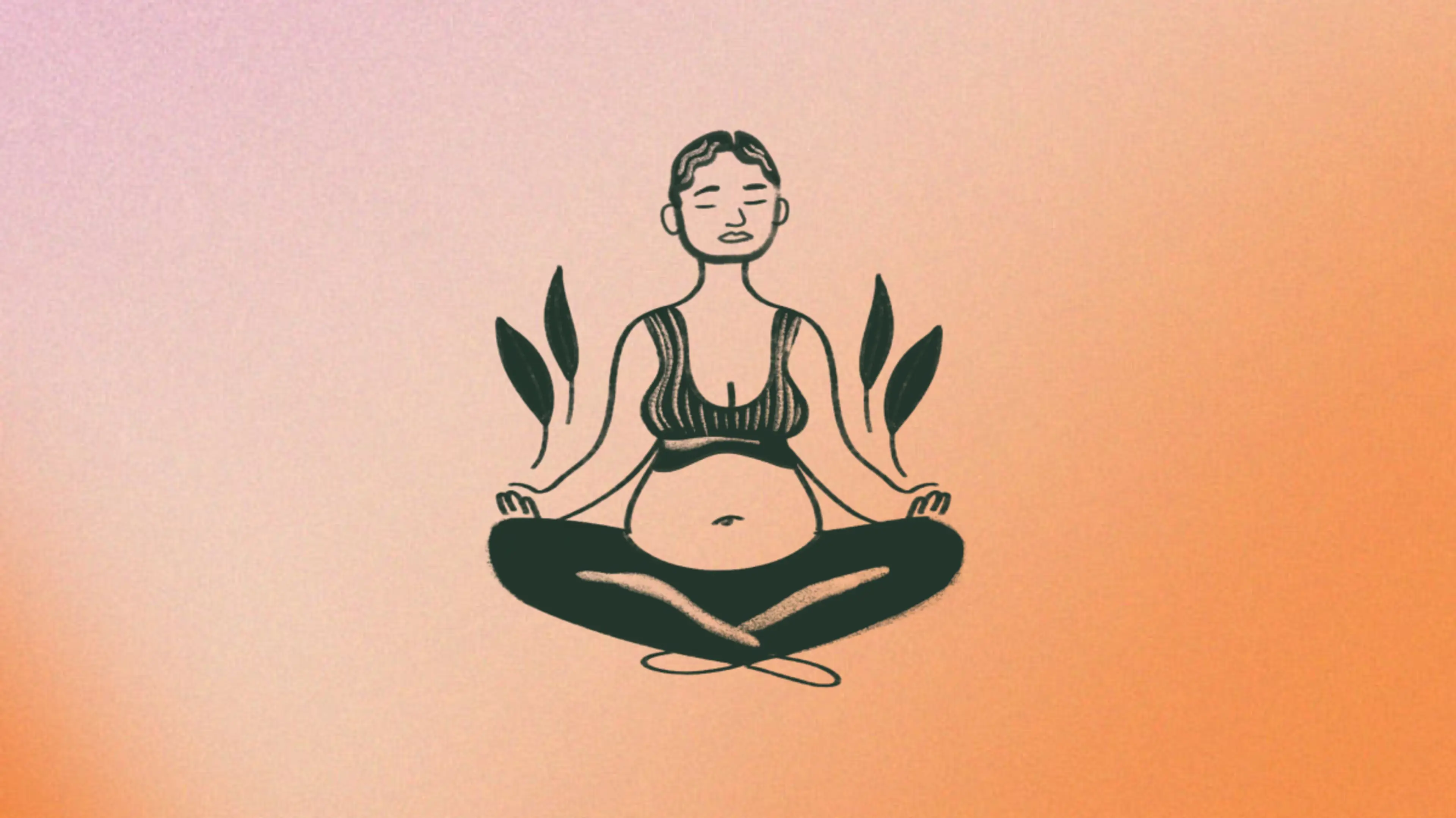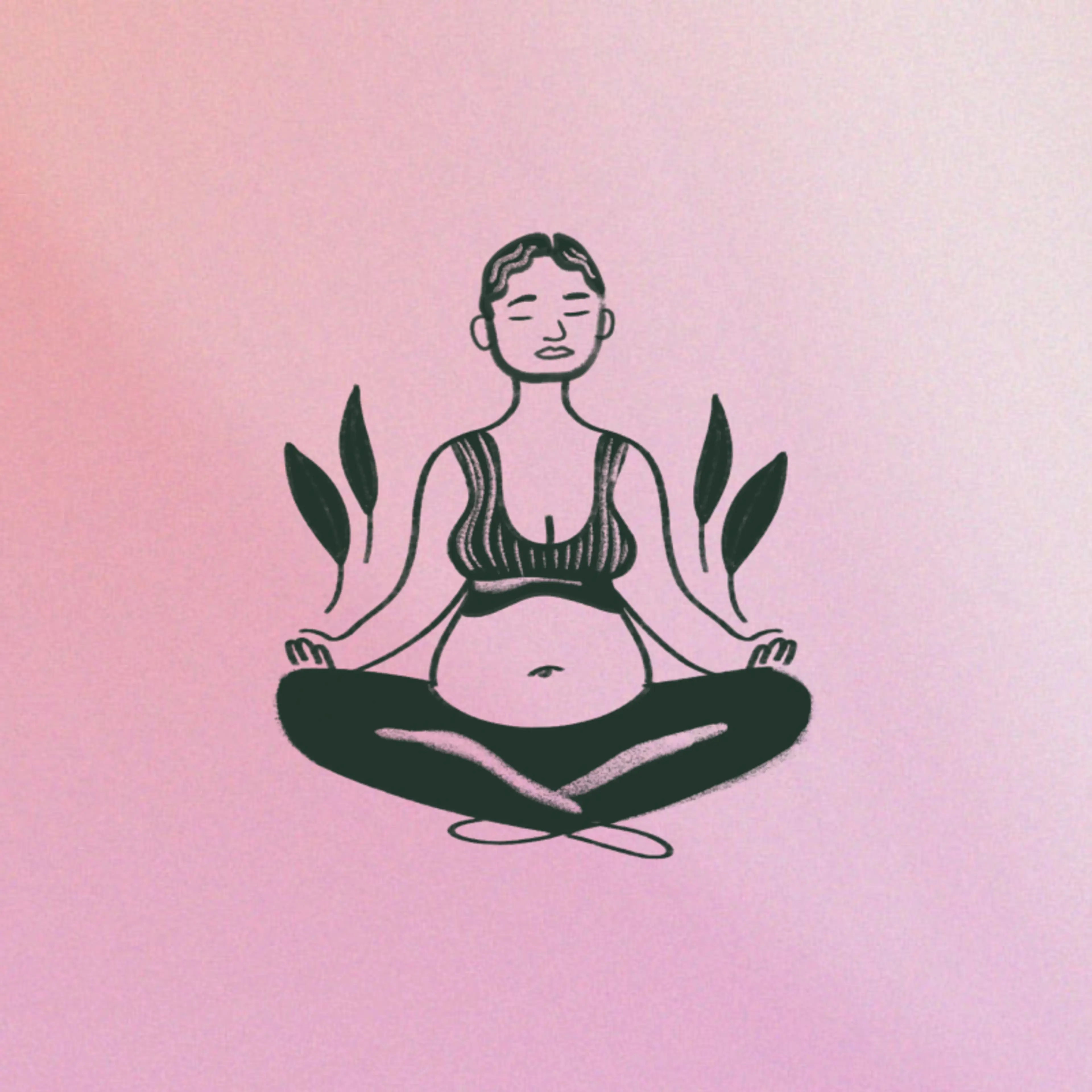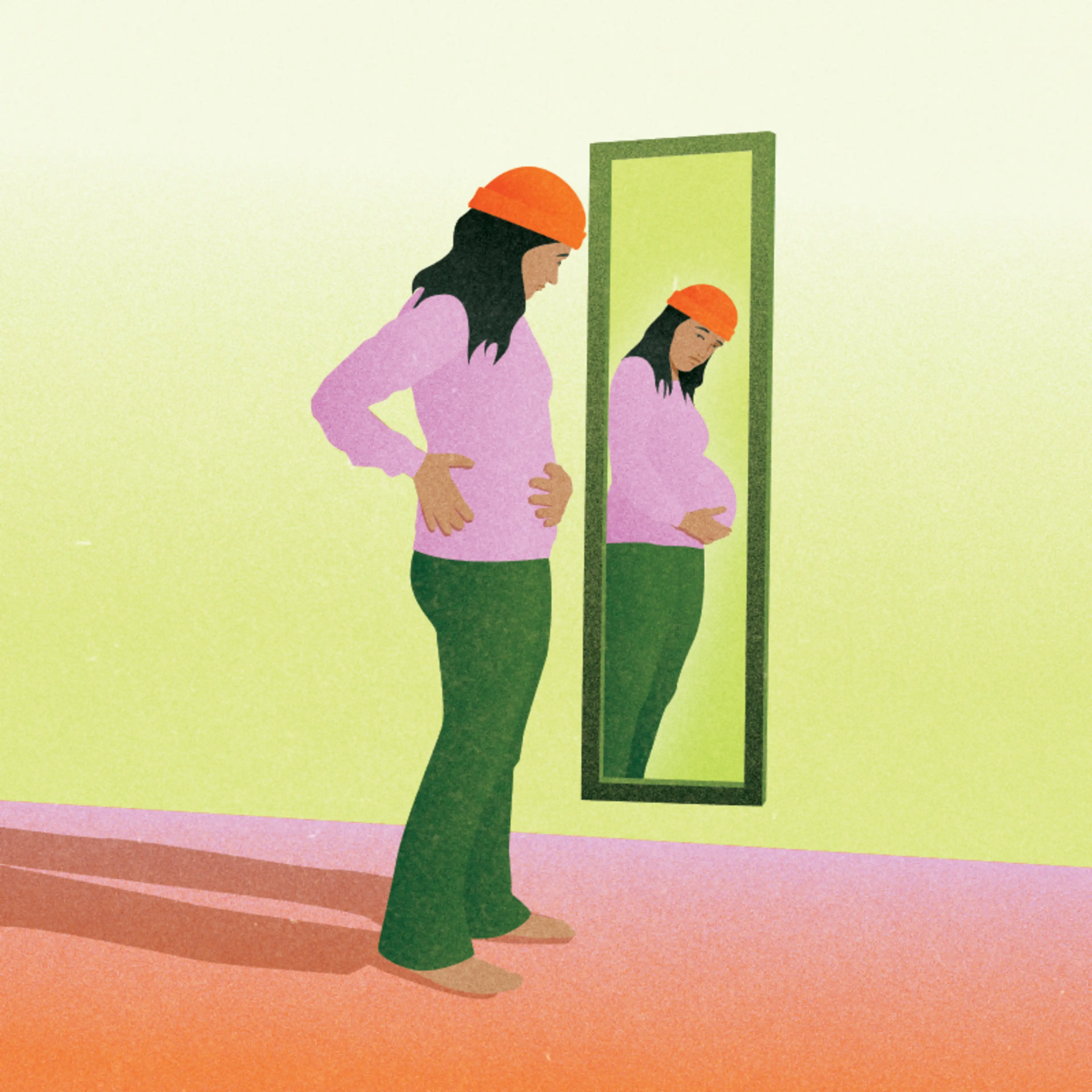“Make sure you load up on sleep!” is a common piece of advice pregnant people hear as they prepare to welcome their newborn into the world. But between backaches, nausea, and hot flashes, it may feel like getting your precious sleep is an uphill battle you’re destined to lose. Thankfully, for many people, a full night’s sleep isn’t off the table—it’ll just take a little adjusting to your routine. Here’s what you need to know about pregnancy insomnia, plus tips to help you get the sleep your body needs.
What Is Pregnancy Insomnia?
Similar to traditional insomnia, pregnancy insomnia refers to difficulties initiating or maintaining sleep, which can cause fatigue, lack of energy, and mood swings. For it to be deemed a chronic condition, Dr. Christina Pierpaoli Parker 1 notes that insomnia symptoms must occur at least three nights a week, persist for three months, and “not be better explained by another disorder.” Like many other pregnancy side effects, insomnia is all too common, impacting about 78% of pregnant people 2 .
What Causes Sleeplessness at Night During Pregnancy?
While pregnancy insomnia can persist throughout your pregnancy, it tends to be more common in the first and third trimesters, leaving the second trimester a golden opportunity for sleep. “The second trimester is a time when most expectant mothers see improved sleep patterns and quality of sleep,” says OB-GYN nurse practitioner Jacqueline King 3 . “This may be due to the fact that many of the first trimester ailments, like nausea and vomiting, have resolved and the third-trimester symptoms, like Braxton Hicks contractions, and heartburn, have yet to take effect.”
Here are a few common causes of pregnancy insomnia:
Backaches: As your belly grows, your ligament muscles stretch and soften to get you ready for labor. This can take a toll on your back, which can inadvertently affect your sleep patterns as it makes finding a comfortable position difficult.
Anxiety: There’s a lot to worry about when you’re expecting—your health and well-being, how your baby’s growing, and how your other children (if you have them) will react to having a new member of the family among other factors. All of this is normal, but can cause vivid, distressing dreams that may keep you up at night, says King.
Hormones: As King notes, fluctuating hormones can trigger hot flashes as well as nausea and vomiting, which can hinder your sleep. Specifically, while many people presume “morning sickness” only occurs in the morning, it can actually hit at any point, including at night when you should be sleeping.
How Many Hours Should a Pregnant Person Sleep?
While it’s recommended to get eight hours of quality sleep a night, this isn’t always the case. According to Dr. Pierpaoli Parker, individual need for sleep varies significantly from person to person. “Pregnant women should get the amount of sleep they need to feel rested and functional during the day, and this need will vary depending on many factors including age and genetics,” she says. At the same time, try to avoid putting pressure on yourself to get eight hours of rest a night—this can cause performance anxiety surrounding sleep, a psychological factor known to perpetuate insomnia, says Dr. Pierpaoli Parker.
What Helps With Insomnia During Pregnancy?
Though pregnancy insomnia is a side effect many people suffer from, there are ways to curb it. Here are a few expert-backed suggestions:
Get a body pillow: These are shaped to support your growing belly and can help make you feel more comfortable at night. You can also place a pillow underneath your hip, behind your back, or between your knees to support your growing body, says King.
Try massages or heating pads: Both can help minimize discomfort associated with lower back pain.
Prevent nausea: While your nausea and vomiting may not fully disappear, there are things you can do—and avoid—to make them more manageable. For one, avoid trigger foods like spicy dishes and caffeinated drinks. Also, King says you can consult with your doctor about incorporating vitamin B6 or ginger into your routine.
Swap your bed sheets: Prone to hot flashes? Trade your thick bed sheets for breathable cotton or linen to ward off those middle-of-the-night hot flashes.
Use your bed only for sleeping and sex: Dr. Pierpaoli Parker says that if you spend your time in bed worrying, ruminating, or trying to fall asleep, over time, the bed becomes a cue for wakefulness, anxiety, and frustration. To combat this, she recommends trying to relearn the bed as a place for sleep by doing things like watching TV, working, and “doom-scrolling” outside of your bed, and going to bed only when you’re sleepy (not tired). It’s also recommended to get out of bed after 15 to 30 minutes of failed sleeping attempts to unlearn the association of the bed with wakefulness.
Limit caffeine intake: The American College of Obstetricians and Gynecologists (ACOG) recommends that pregnant people consume no more than two six-ounce cups of coffee a day. Besides the health implications, this can help relieve some pregnancy insomnia, as having caffeine before bedtime makes falling asleep more difficult and affects the quality of the sleep you actually manage to get. (Also, don’t forget to consider other sneaky sources of caffeine, including chocolate and certain medications, says Dr. Pierpaoli Parker.)
Create a bedtime routine: Having a bedtime routine is important for everyone—not just newborns. Try limiting screen time, taking a bath, reading a book, or meditating to wind your mind and body down. Blackout shades or a noise machine may also help.
Take labor and newborn courses: If you’re feeling stressed about birth, postpartum, and newborn care, it may be helpful to educate yourself on these topics. This can help relieve the anxiety of the unknown, which can make for a better night’s sleep.
If you think you may have chronic pregnancy insomnia, ask your doctor about visiting a behavioral sleep medicine provider who provides Cognitive Behavioral Therapy for Insomnia (CBT-I).










